The Week on Stage: From Eureka Day to Jews. In Their Own Words
A guide to the week’s theatre

It was a week of serious drama, with classic revivals and contemporary writing wrestling with a range of debates. The National Theatre’s revival of The Crucible was the standout, finding a way to move Arthur Miller’s play beyond its afterlife as a lazy literary reference for modern “cancel culture”.
Join us next week for our verdicts on Broadway hit The Band’s Visit, and Orange is the New Black star Samira Wiley’s (postponed) London stage debut.
Eureka Day – Old Vic ★★★☆☆
The first five minutes of Eureka Day are funny. A seething satire of the liberal left that plays whack-a-mole with “woke” words: gaslighting; privilege; mansplaining. The next five minutes are… more of the same. Those are less funny. More tiresome. It is lucky, then, that in the play’s second half, Jonathan Spector’s script – about parents at an uber-progressive, left-wing preschool dealing with a mumps outbreak – cleaves off the cheap shots.
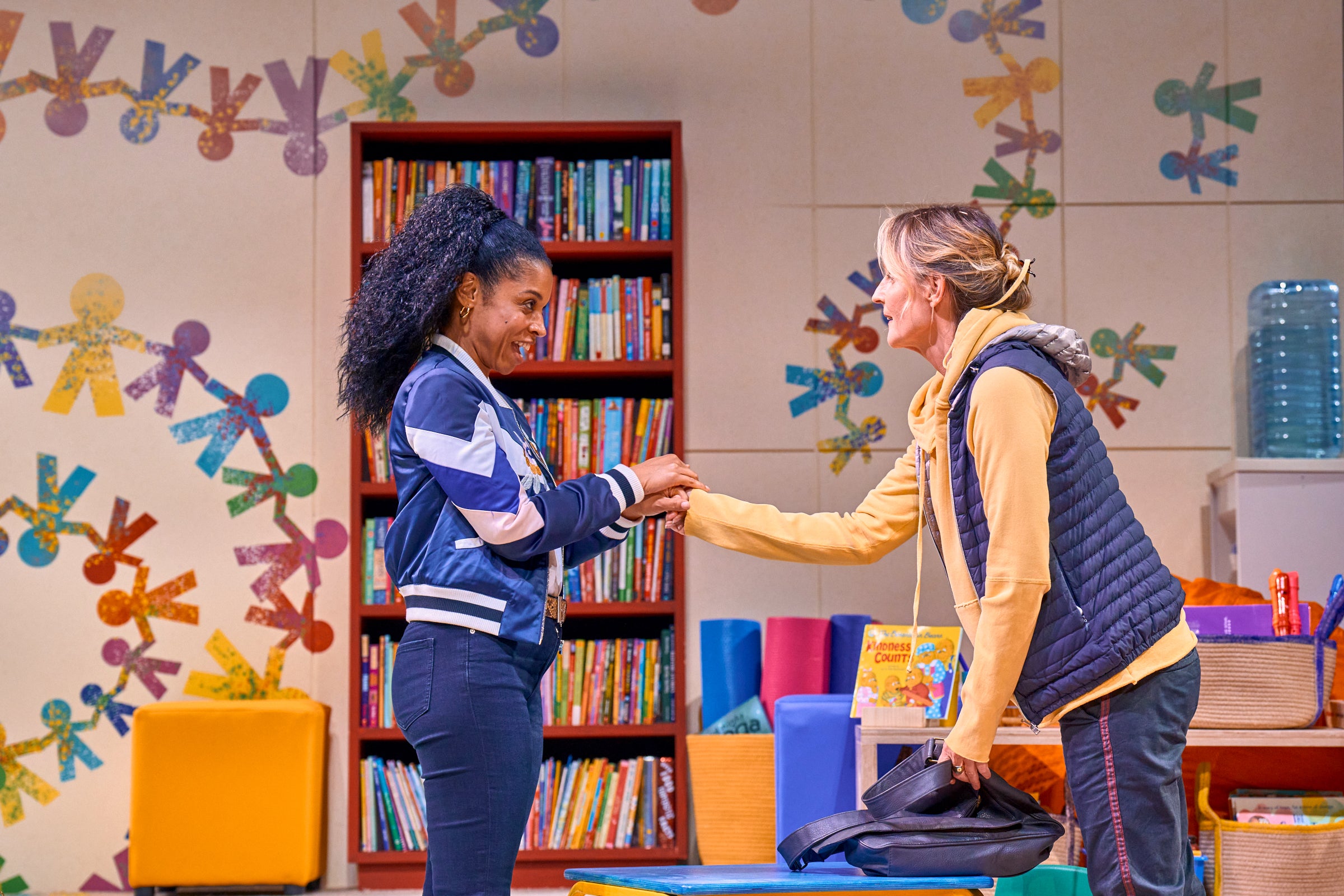
Debates on vaccinations and social justice are given careful thought and the message is political without banging you over the head with it. A stellar cast is led by Emmy winner Helen Hunt who feels natural in her role as Suzanne – a faux-chill mum whose open-toe Birkenstocks belie a deeply controlling interior. Eureka Day is a good time, with moments of real and pertinent discussion – but you have to manoeuvre through a lot of low-hanging fruit to get there. Annabel Nugent
The Crucible – National Theatre ★★★★☆
There’s a sensuous beauty to Lyndsey Turner’s production of The Crucible that contrasts perfectly with its author Arthur Miller’s subject: a Puritanical 17th-century community whose girls, deprived of beauty and pleasure, turn to more violent sources of satisfaction.
The Crown’s Erin Doherty plays the girls’ leader, Abigail, as a harsh, broken thing. Brendan Cowell doesn’t bring much glamour to the central male role of John Proctor, either. This part can become irritatingly saint-like: a man who rejects Abigail’s advances and chooses the path of probity. But here, Cowell is a shambling (if principled) hick who grabs the girls around him by the collar of their pretty dresses in moments of rage.
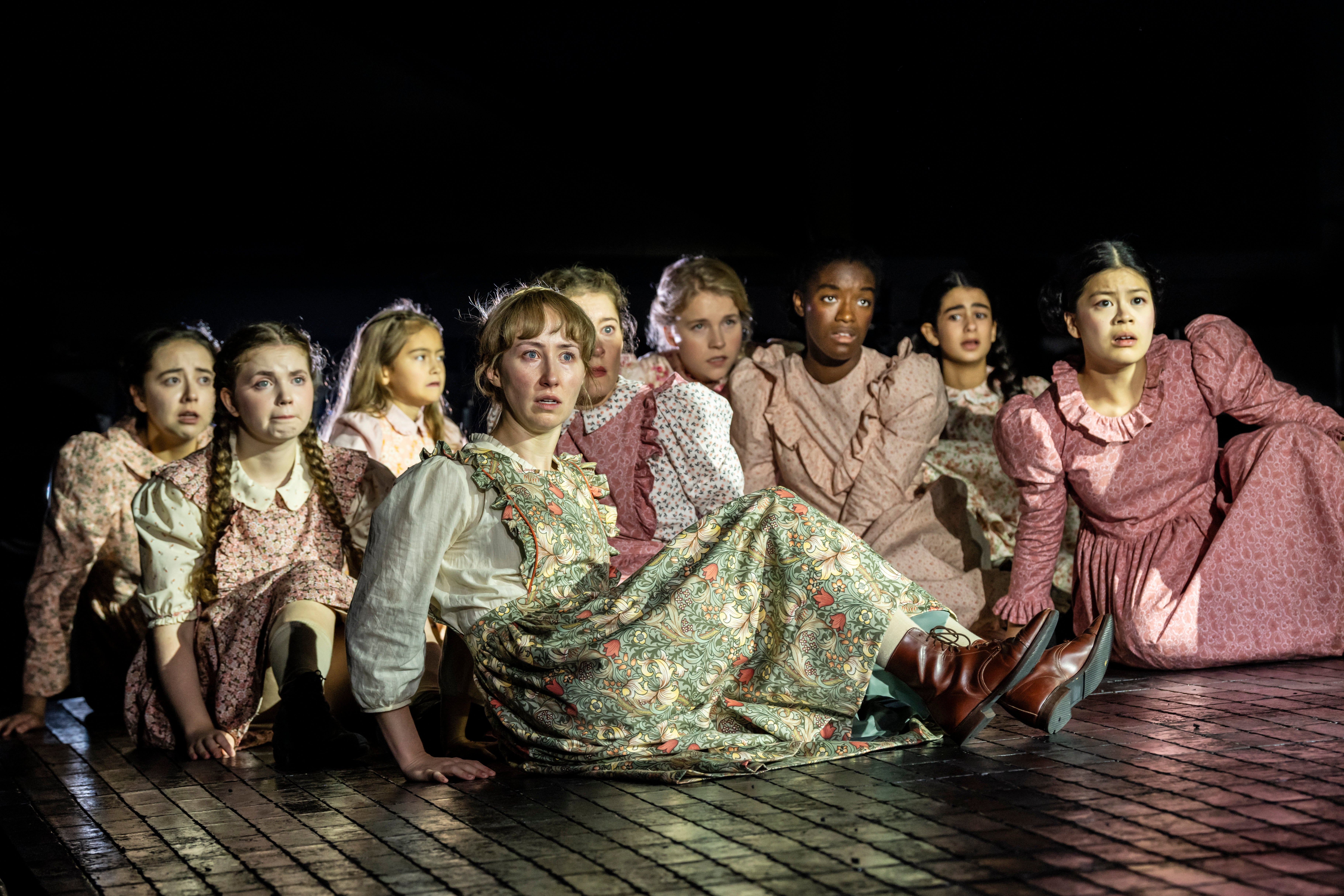
Turner makes it clear that religious hysteria hasn’t gone out of style. Instead of being set in the Puritan era, this production lightly references present-day American cults, with Catherine Fay’s costume design putting the women in the kind of Laura Ashley-esque cotton dresses favoured by fundamentalist Mormons. The Crucible is a play with another, more unfortunate kind of contemporary relevance. It’s been lazily called upon in complaints about the #MeToo movement and online cancel culture, but The Crucible can’t really be claimed by any one cause: hysteria happens on every side.
Still, I’ve long struggled to fully love Miller’s play because of the bitterness at its heart. It paints the teenage Abigail as a mono-dimensional villain who condemns dozens of people to their deaths, just because she’s rejected by Proctor, an older man who seduced her. Thankfully, this production also prevents Proctor from being a heroic figure, dragging him into the murk of this warped society. It’s a play of sensory beauty and moral ugliness, showing that no drug is more powerful than self-righteousness, whatever side you’re on. Alice Saville
Jews. In Their Own Words – Royal Court ★★★☆☆
A man emerges from a crack of lightning. “Is this the promised land?” he asks. The reply comes from a god-like voice: “Not exactly… it’s the Royal Court.” He wants to know why he’s here – and why his name is Hershel Fink. It’s a knowing wink to the controversy that engulfed this theatre last year, when a character in Al Smith’s play Rare Earth Mettle – who happened to be a corrupt, manipulative billionaire – was given the Jewish name. After accusations of antisemitism, the character was renamed Henry Finn and the theatre apologised, carrying out an internal review. It also commissioned this show, based on an idea from actor Tracy-Ann Oberman and comprised of interviews with the Jewish community, carried out by Guardian journalist Jonathan Freedland.
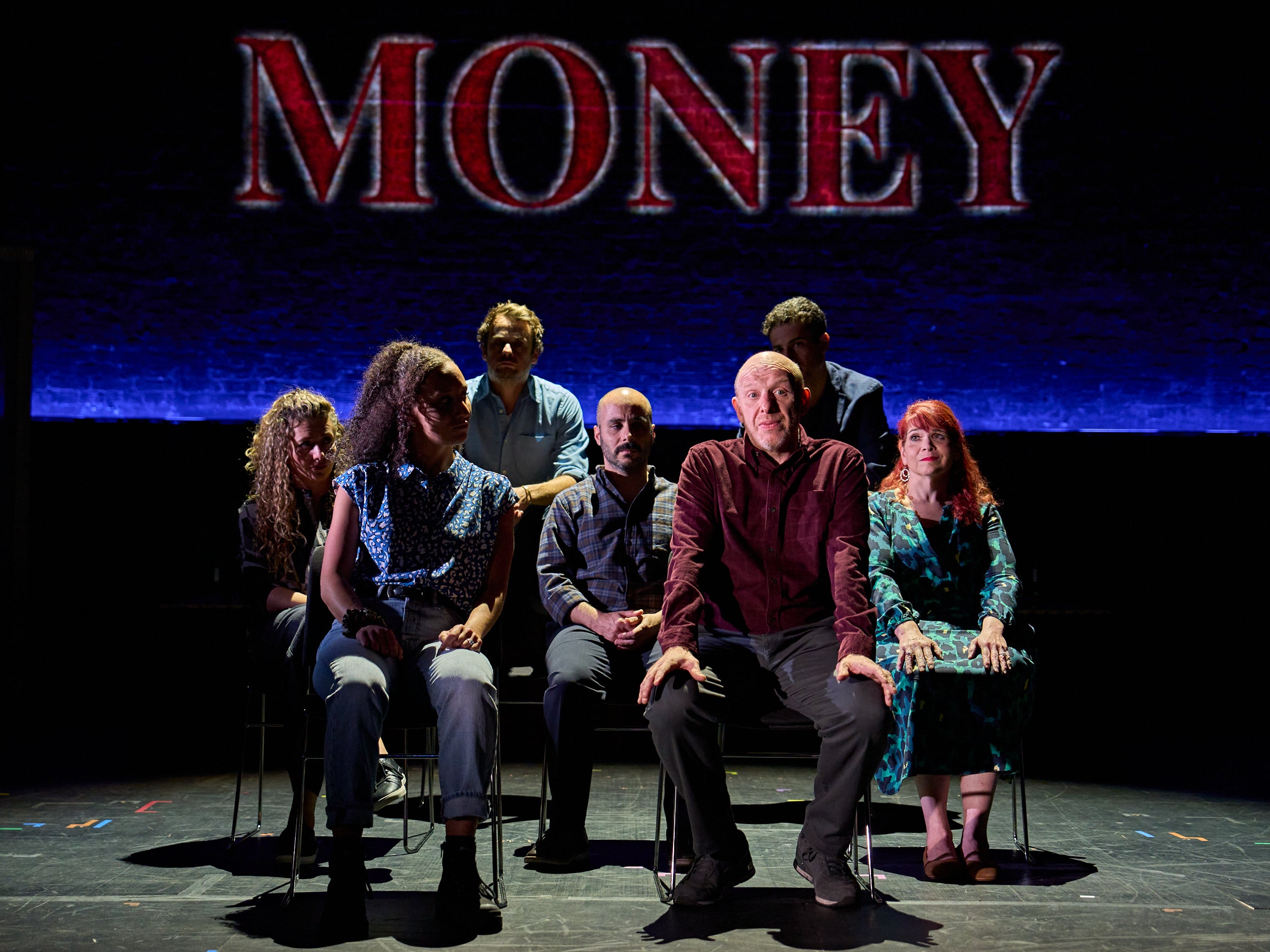
Across 100 minutes, we hear from 12 figures, including Labour MP Margaret Hodge, former Labour MP Luciana Berger (suffice to say, Jeremy Corbyn doesn’t come out of it well), novelist Howard Jacobson, political journalist Stephen Bush, Oberman herself, a decorator, a doctor and a refugee. The interviews explore the origins of offensive stereotypes around money and power, and feature powerful testimonies about an inherited sense of never feeling safe enough to settle. One description of a physical attack is horrifying, and directors Vicky Featherstone and Audrey Sheffield sensitively give it the space it needs to be told. There are also compelling debates about why the left, which prides itself on striving for social equality, has sometimes perpetrated antisemitism. Is it susceptible to tropes about money and power because these are the things it pushes against?
There is, though, sometimes a sense of being stuck in a seminar. Attempts to enliven proceedings, including a vaudeville-esque song featuring the lyric “it was the Jews that did it”, strike a jarring note. If this self-styled “theatrical inquiry” can feel hard-going, it is also well-intentioned; the Royal Court clearly takes very seriously the need to build bridges with the Jewish community. If the show itself won’t be remembered, at least perhaps the gesture will. Jessie Thompson
John Gabriel Borkman – Bridge Theatre ★★★☆☆
In Ibsen’s penultimate 1896 play, John Gabriel Borkman is a dislikeable man. Years on from his prison sentence for fraud, the Norwegian banker still views himself as “exceptional”. With little time for self-criticism, he paces up and down his room – his new jail – pining for his lost wealth and renown.
At the start of Nicholas Hytner’s neat production, we hear Borkman’s footsteps overhead as his estranged wife Gunhild and her twin sister Ella Rentheim spar verbally downstairs. Both are after the approval of 23-year-old Erhart, the Borkmans’ son, who was raised by his aunt after his father fell into disgrace.
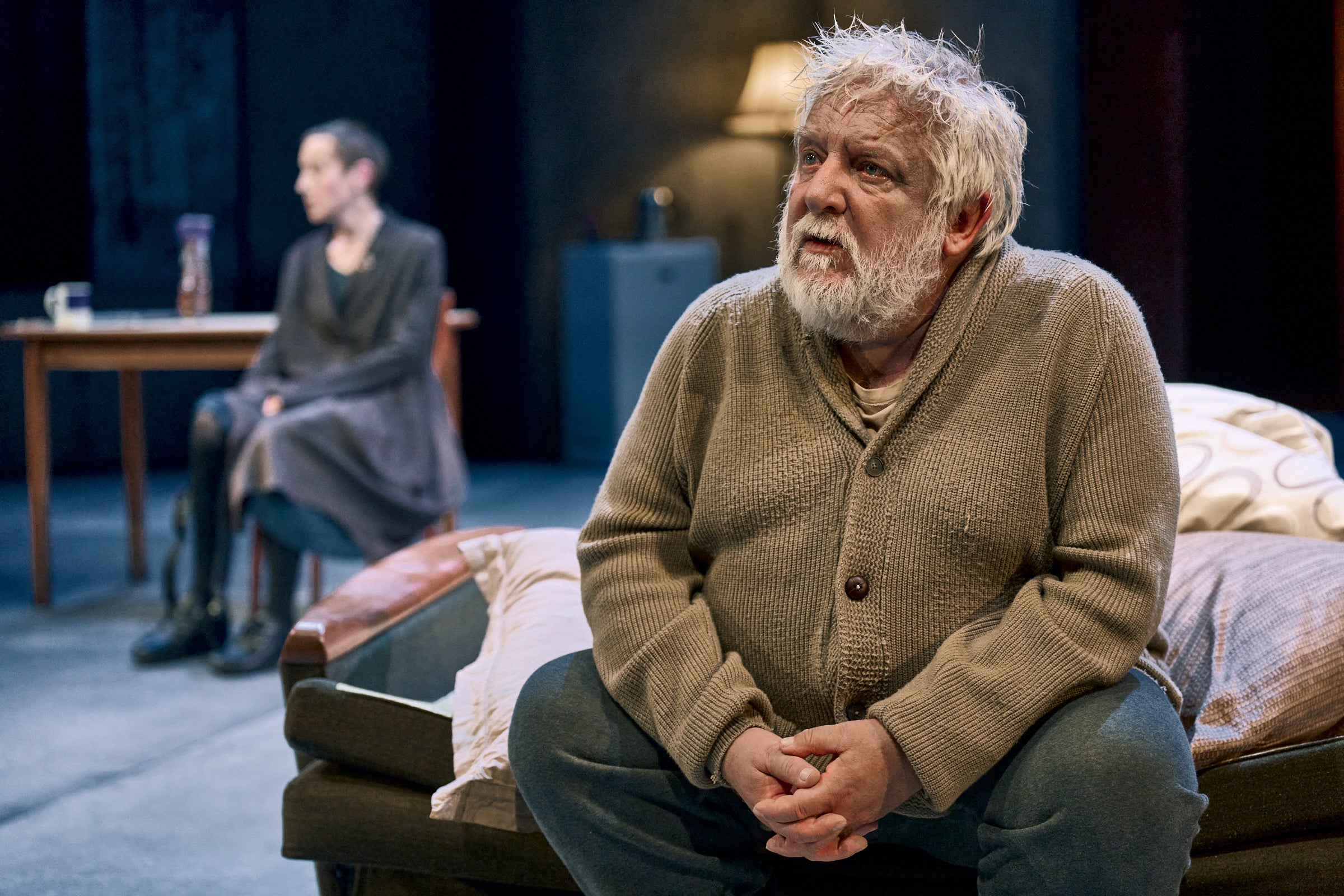
Lucinda Coxon’s re-write of the late 19th century work brings the action into the modern day, but can’t overcome the problems of the text: it is high on melodrama and low in depth. This is especially true of act three, when John, Gunhild and Ella fight for possession of Erhart, who chooses to follow his own path instead.
There are some wonderful performances, most notably from Simon Russell Beale as Borkman and Lia Williams as Ella. Beale, with occasional bursts of sardonic humour, draws out Borkman’s imperviousness to other people’s emotions, as well as his obsession with his own greatness. Anna Fleischle’s sleek concrete set is also a triumph, its bareness perfectly attuned to the family’s despair and the Scandinavian winter blowing outside. However, in the end, neither can fully make up for the shortfalls of the play itself. Rory Sullivan





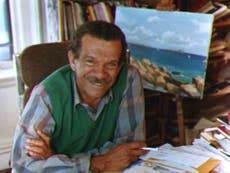
Join our commenting forum
Join thought-provoking conversations, follow other Independent readers and see their replies
Comments